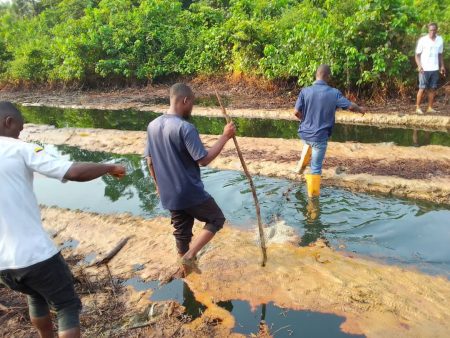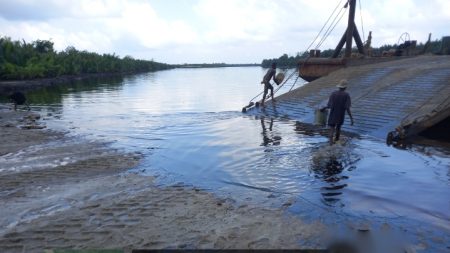 17 September 2012, Sweetcrude, JOHANNESBURG – A security crackdown on protesting miners in South Africa’s restive platinum belt, where 45 people have died in a monthlong wildcat strike, appeared to bear fruit Monday as one of the biggest mines re-opened.
17 September 2012, Sweetcrude, JOHANNESBURG – A security crackdown on protesting miners in South Africa’s restive platinum belt, where 45 people have died in a monthlong wildcat strike, appeared to bear fruit Monday as one of the biggest mines re-opened.
In a fresh crackdown, police at the weekend confiscated traditional weapons from striking miners and fired teargas and rubber bullets to disperse those that gathered at Lonmin Marikana’s mine.
On Sunday, police stopped a group of miners that had tried to march on a police station in Rustenburg town in protest at the crackdown the previous day at the strife-hit Marikana mining town.
Aquarius Platinum, the world’s fourth-largest platinum producer on Monday morning resumed work after temporarily halting operations at the Kroondal Mine near Rustenburg last week amid rising unrest, AFP reports.
It had ordered a closure on Friday “to ensure the safety and security of employees and assets given the rising tensions and protests within the regional workforce and communities.”
Aquarius commended the government and the police “for their intervention and support over the weekend.”
Leading ferrochrome producer, Xstrata Alloys, also suspended work on Friday due to the mounting protests, but resumed Monday.
“Today we have 90 percent of attendance of employees and the mine is producing normally,” Christopher Tsatsawane, Xstrata spokesman told AFP.
Police action was the first since its officers shot dead 34 strikers at nearby Lonmin mine a month ago.
The Lonmin mine wage strike, which started on August 10, snowballed into a wave of unrest forcing shut-downs at several other mines including the world’s top platinum producer Anglo American Platinum.
Anglo American Platinum closed five mines over safety fears as a tide of protests swept across the metal’s sector and was planning to re-open on Tuesday.
“The situation in Rustenburg remains calm and our current intention is to resume operations on Tuesday morning, 18 September, which will provide time for the government to implement further security measures,” Anglo American announced late Sunday.
Police on Saturday carried out government orders to stamp out the illegal gatherings, illegal weapons, incitement and threats of violence that have characterised the protests.
On Sunday, police blocked a march by protesting miners in the restive platinum belt.
Alongside the military, police redeployed at Lonmin’s Marikana on Monday morning dispersing a group of less than 100 strikers that tried to gather at Lonmin’s Marikana mine.
Four military armoured personnel carriers were stationed outside one mine shaft at Lonmin, as police patrolled the streets and alley ways of the residential areas in Marikana.
The government last week warned that labour unrest could have a negative impact on investor confidence and looked likely to affect growth in Africa’s largest economy.
Roger Baxter, chief economist at South Africa’s Chamber of Mines on Monday said the agency was “aware of the contagion risk and we are very focused on resolving the various serious challenges because … it does represent a serious challenge for South Africa.”
Meantime Lonmin said Monday that in line with a decision taken in July to reduce capital expenditure amid a weak pricing environment, it would “defer” work at three of its shafts. It has given notice to terminate its contract with Murray and Roberts which supplies it with around 1,200 staff.



